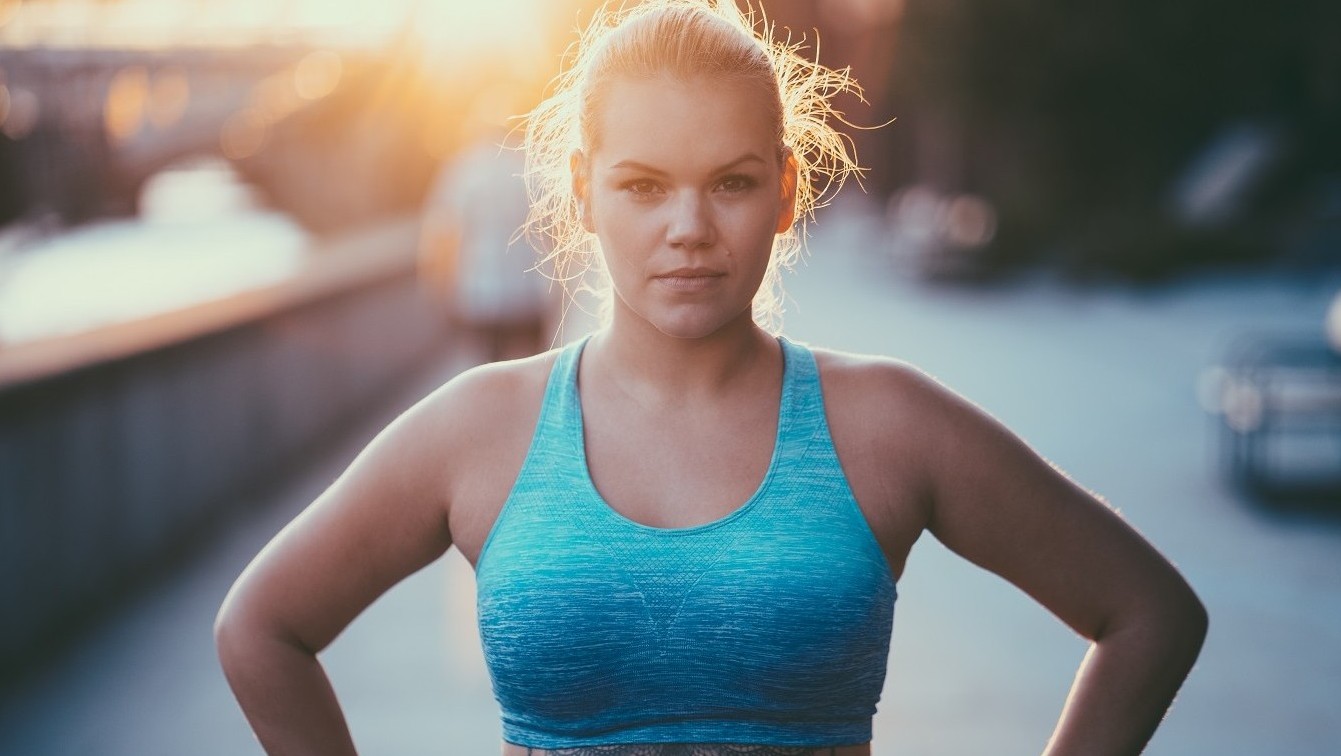Women have been bombarded by unrealistic body images in the media for decades.
And with Bodyguard star Richard Madden speaking out about the demands put on male actors too, it’s a timely reminder that both men and women are at risk of being made to feel inadequate and anxious about their bodies.
This constant barrage of unrealistic body images can have a worrying effect on both adults and children. It can lead to crash dieting, extreme exercising and, at its worst, depression, body dysmorphia and eating/exercise disorders.
It’s extremely difficult for parents to monitor what children are exposed to, especially with smartphones, social media and screens in every room of the house. And without realising it, we, as adults, can absorb these negative messages too.
Healthy perspective
Steering talk away from weight and introducing talk about activity will help you maintain a healthy lifestyle and healthy body.
Using words like ‘strong’ and ‘fit’, rather than ‘skinny’ or ‘slim’, is a more positive way to ensure you’re all striving to be healthy rather than aiming for a specific body shape.
Don’t compliment people for losing weight, but talk about other great attributes, like something they’ve done at school, or how a certain colour they’re wearing suits them. Likewise, don’t comment on celebrities’ weight on TV. Talk about positives like a good singing voice, gold medal win or charity work they’ve done.
It’s important to remember that people come in all shapes and sizes, and that everyone’s body reacts to exercise differently. Some people might not get a six-pack, no matter how many ab crunches they do.
In addition, what you see on the outside doesn’t necessarily reflect what’s on the inside. It’s important to remember that ‘skinny’ doesn’t necessarily equate to healthy.
Focus on exercise
Regular exercise will help keep weight in check but, more importantly, it improves heart health, strengthens bones and muscles, boosts mood, reduces stress, and minimises the risk of illnesses.
The Government recommends that adults do an average of 150 minutes of moderate activity a week, and children aged between five and 16 do around 60 minutes a day.
This could be anything from a brisk walk or a swim, to a run or aerobics class at your local gym.
If you and your family choose a target to aim for, let it be to meet these Government guidelines rather than a weight, look or size goal.
Eat well
With reality stars like Katie Price and Kim Kardashian promoting appetite-suppressing products on social media, it’s easy to be tempted into an unhealthy relationship with food and exercise to reach a ‘goal’ weight or look.
Obviously, we shouldn’t encourage calorie counting among children, but it’s vitally important to educate kids (and ourselves) about eating a balanced meal. The Government’s EatWell plate is a great place to start.
Just because someone famous endorses a product, does not make it healthy or mean it actually works. Many of the celebrities and influencers who promote slimming aids look the way they do through gruelling exercise regimes, extensive surgery, a team of stylists and image manipulation – not by drinking a tea or sucking on a lollipop!
Children, who might not realise everything they see on social media isn’t real, are especially susceptible to these messages.
Concentrate on the positive
If you can’t tear yourself or your kids away from social media, follow more positive role models such as professional instructors, activists, adventurers and body positive/body neutral influencers who share more realistic messaging.
It’s a good idea to stop following anyone who endorses slimming products, crazy exercise/diet regimes or talks about how you have to lose weight or look a certain way to be accepted.
Actress Jameela Jamil was so fed up of seeing people’s worth being measured by their weight, that she started an Instagram account to celebrate how we are more than what we weigh.
The account – @I_Weigh – calls for people to share images of themselves listing their strengths, achievements, and flaws – without a mention of weight or body image. It also dispels myths about unachievable body shapes that have been manipulated by photoshopping or surgery.
The Be Real campaign website and social media accounts have great resources aimed at tackling anxiety about body image too.
Expert help
The first steps are to have open discussions at home. If your child says they can’t eat something as they’re ‘fat’ or ‘ugly’ carefully ask them why they feel that way. This can lead to discussions about body image, unrealistic pressures from the media and what a healthy attitude to body image, food and exercise looks like.
Remember – be sensitive and supporting. If you don’t have the answers, find them out together.
If you need more help from an experienced professional, pop into your local gym and speak to a fitness coach. They will be able to explain what a healthy body looks like and work with you to develop a sensible and sustainable fitness regime.
If you think it’s a serious issue you can speak to your GP or practice nurse. They’ll be able to offer support and signpost you to other services. Charities like Beat can support those with eating disorders.
Educating yourself about food and exercise, and understanding that healthy bodies come in all shapes and sizes, will ensure you and your children live a long and healthy life.

